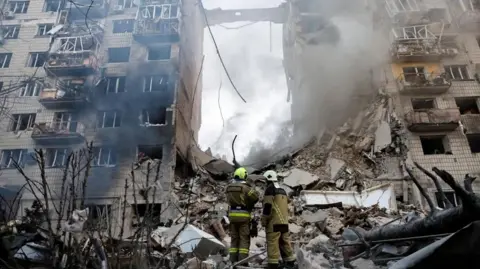In recent developments, the United Kingdom is poised to introduce a fresh set of sanctions against Russia, aimed at significantly hampering what Prime Minister Sir Keir Starmer terms “Putin’s war machine.” This announcement comes in conjunction with a coalition of Ukraine’s allies as part of their ongoing efforts to maintain economic pressure on the Kremlin. The plans to unveil these sanctions are scheduled for Tuesday, reflecting the UK’s commitment to bolster Ukraine amidst the persistent conflict with Russia.
Sir Keir Starmer emphasized that these new sanctions are necessary to compel Russian President Vladimir Putin to acknowledge that it is in both his and Russia’s best interests to pursue peace. The Prime Minister’s statements underline a critical strategy of using economic leverage to potentially influence the course of the conflict. Yet, in a complex turn of events, it appears the United States may refrain from participating in this new sanctions initiative. Former President Donald Trump’s recent comments during the G7 summit held in Canada suggest a contrasting perspective, as he noted that further sanctions would “cost [the US] a lot of money.”
As tensions mount, Ukrainian authorities have reported a recent escalation in hostilities, with drone and missile strikes injuring at least 16 people in Kyiv during the night. This surge in violence amplifies the urgency for effective international responses to Russia’s relentless military actions. In light of these attacks, the UK government has expressed a commitment to introducing a sanctions package that aims to target the Russian military-industrial complex and amplify economic challenges for Moscow.
However, detailed information regarding the specific contents of the sanctions package has not been disclosed, leading to speculation about the measures’ impact and efficacy. A spokesman from Downing Street mentioned that the specifics remain limited as discussions within the G7 are still in preliminary stages. The spokesman characterized the timing of the announcement as “premature,” indicating that a comprehensive announcement will follow the G7’s deliberations.
On the topic of sanctions, Trump suggested a degree of skepticism regarding their effectiveness and implications. By stating, “You’re talking about billions and billions of dollars. Sanctions are not that easy. It’s not just a one-way street,” he articulated concerns about the economic repercussions of sanctions not only for Russia but also for the United States and its allies. This raises pivotal questions about the overall strategy for curtailing Russian aggression without incurring substantial financial costs for the US and its partners.
Compounding the situation, Trump’s exit from the G7 summit cited the escalating conflict in the Middle East, implying an ongoing complexity in international political relations. Trump has referred to Russia’s past expulsion from the G7 following its annexation of Crimea as “a mistake,” arguing that removing Russia from such discussions reportedly complicates diplomatic efforts. This stance could signal a shift in how future administrations might engage with the complexities of international disputes involving Russia.
The context surrounding Starmer’s announcement and Trump’s contrasting position reveals a multifaceted landscape where politics, economics, and military strategy intertwine. The UK’s resolve to apply new economic pressures aligns with broader efforts by Ukraine’s allies while also confronting the divergent opinions and strategies from key global players, such as the US and its former president.
As nations navigate these tumultuous waters, the effectiveness of sanctions in transforming the conflict dynamics remains under scrutiny. The path forward necessitates not only cohesive strategies among allies but also an understanding of the political climate and economic ramifications inherent in imposing such measures. Thus, the battle to invigorate peace discussions while simultaneously exerting pressure on the Kremlin becomes a delicate balancing act for global leaders eager to resolve one of the most significant conflicts of our time.



